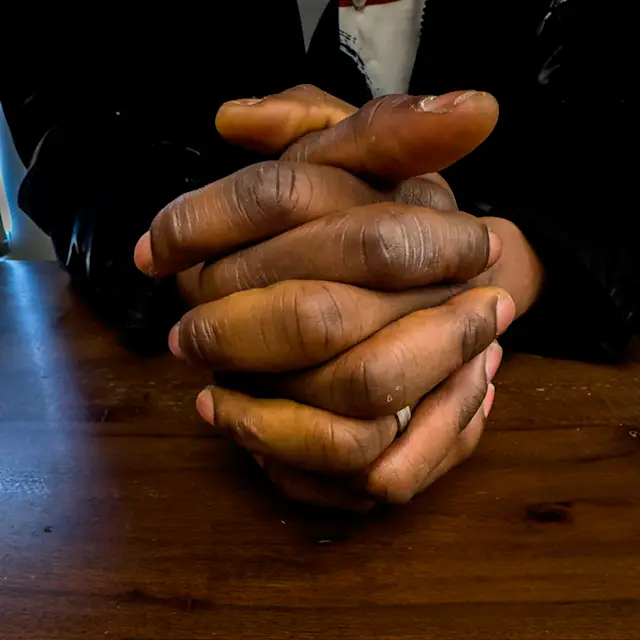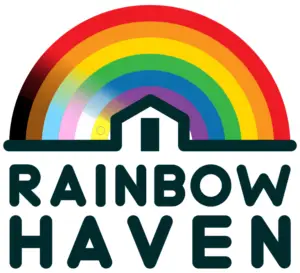
Bab's Story
The young man wishes to be known as Bab for this article. It’s a nickname that’s short for “Bad and Boogie,” the title of a hit hip-hop song about having bourgeois tastes yet being down to earth or “real.”
Bab steps inside to a warm meeting room, escaping an early December blast of frigid cold and snow in central Canada.
He’s come to talk about a much more difficult and harrowing escape as a young gay asylum-seeker from a country in Africa where his very existence is considered a crime. A place where he feared violent crimes committed against him would go unpunished.
“You will see boys from around the neighbourhood just invading your house and just attack you,” says Bab. “The saddest part of all is they attack you for no reason, but the community would not see that they are ones at fault because of you being gay, you are the one who is at fault without doing anything. So they would just be like, oh, they are gay so clearly they are the ones who should not be here. Right.”
Bab left his homeland of the Gambia in 2016, heading to Dakar in Senegal, the location of the nearest United Nations High Commission for Refugees office, but also a place with its own anti-LGBTQ + laws.
Like many young LGBTQ + asylum-seekers in Eastern Africa, Bab’s months-long journey to safety included a difficult wait in Dakar.
“The journey comes with stigma, discriminations. It comes with hard pain, sleepless nights, hunger. It comes being broke. It comes with problems of nothing to eat, where to sleep, where to have clean water.”
Bab says aside from a couple of small stipends from the UNHCR, he and other LGBTQ+ refugees were on their own in a hostile country where they were not allowed to work. Leading some to take drastic measures to survive.
“For example, you have to sleep with men to get money to feed yourself. Yeah, you have to sleep with men to get to feed your own self. You have to borrow money. You have to get any kind of possible way for you to get money.”
In spite of all that, Bab counts himself lucky that his journey lasted only one year before Canada accepted him as a refugee. He has friends in Dakar now who have been waiting much longer.
“Now that I see a couple of my friends there for two years, three years, four years, you know, going through everything life could possibly throw in their face for three or four years,” he says. “I see those ones eh struggling. I just feel sick to my stomach, because for us, it was a little bit easier.”
Bab says that’s why Rainbow Haven’s work is so important. The group raises money to pay for food and a couple of apartments in Dakar as shelter for LGBTQ + people while they wait out their asylum claims.
“It’s important to help them because I know that being gay in Africa is hard, that being African or being like us. So, when they get any kind of help, it might be food, it might be clean water, it might be uh shelter, it might be money to for the transportation. It will all help.
Bab says to take it from him donors to this cause are saving lives.
